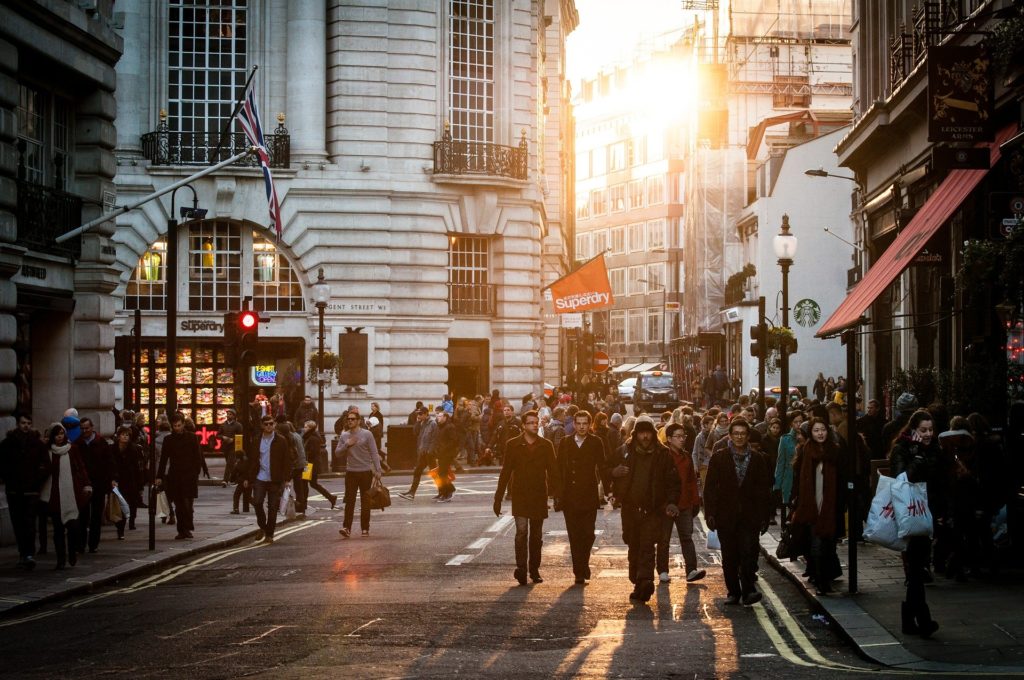
Department of Strategy and International Business, University of Birmingham
We have witnessed how coronavirus has spread rapidly and become a global pandemic in just a few months. Governments around the world have taken drastic measures to stop the virus transmission and save lives. Following advice from scientists and medical professionals, it appears that the best way of preventing virus transmission is to avoid physical contact through so called ‘social distancing’. More precisely, perhaps it should be called physical distancing.
China and some East Asian countries adopted strict lockdown measures at an early stage. The whole city of Wuhan with 11 million people was totally cut off from the outside world from late January until very recently (8th April). It seems that the people of Wuhan have obeyed and coped with the social distancing order very well. Overall, there appears to have been few rule breakers in Wuhan and the rest of China. The lockdown measures have been implemented seamlessly without resistance or widespread complaints. This has helped to slow down virus spread, ease the pressure on the medical system and save lives, as well as resources for social policing. It has helped to deliver common good for individual citizens, and the society as a whole.
Similar measures have been adopted by Western countries, such as Italy, Spain, France, the UK and the US. However, it has been reported that some citizens have not been following the social distancing rules, and there have been some rule- breakers in these countries. The governments in some European countries have had to ask the police force to help to enforce the rules and ensure that people stay at home or, if they go out, follow the guidelines on social distancing.
Why is it more difficult to implement social distancing in the West compared with China?
There are many reasons, including different political systems and the administrative power of governments. It is widely acknowledged that an authoritarian government has advantages in dealing with a crisis like this. Authoritarian governments are often critical resource holders and can allocate and mobilise resources/people very quickly. A large and bureaucratic government also has a tight and hierarchical system which holds officials at all levels accountable. Government intervention is the norm and generally well accepted by the society. However, it may be helpful to look at how individuals respond to a social order taking into account the cultural context.
Culture is commonly defined as values and beliefs that are shared by a group or society. Culture in general guides individual behaviour in a society and there are extensive studies on national culture. One of the most influential and widely cited studies is Hofstede’s cultural dimensions. One cultural dimension, individualism-collectivism, can be used to explain why people from different countries respond differently to social distancing measures.
Cultural differences between individualistic and collectivist societies
In collectivistic cultures, members of a society tend to fulfill the obligations of their social role to maintain group harmony and prioritise group interests over individual interests. A group protects individuals in exchange for their loyalty to the group. Thus, in collective societies/countries, people place more emphasis on obligations, compromise and harmony. Deviation from established social norms is often sanctioned. There is a great deal of social conformity. This may provide the social legitimacy for the government to implement regulations to deal with a public health crisis such as Covid-19.
In contrast, in individualistic societies, people tend to pursue their own individual goals and achievements. Individual freedoms and interests come first. Citizens in such a society value self-actualisation, privacy and freedom. Governments have limited power in controlling people’s lives and freedoms. Social orders and rules are sometimes perceived as a violation of individual freedoms and human rights.
According to Hofstede, Western countries, such as the US, Australia and the UK, score highly on individualism, whereas Eastern countries, namely, China, Singapore and South Korea, have low individualism scores. This may help explain why it is more challenging for Western countries to adopt the same level of control measures as China.
Culturally, Western countries face a dilemma when making a choice between individual freedoms and the restriction of such freedoms for the common good. An appropriate balance which maintains freedoms and yet reduces virus transmission is hard to achieve during such an extraordinary time. In such a cultural context, government regulations combined with bottom-up community intervention may be more effective in encouraging people to follow social distancing orders rather than using a policing force.
Although countries with a collective culture may have advantages in preventing virus spread, it may come at cost. It is understandable that crises create a strong demand for governments to take action or intervene on behalf of the whole society. However, it can be detrimental if the government continues to maintain these tight controls after the crisis. As some commentators have warned, Covid-19 may give some governments even more power permanently which, in some cases, may be perceived as a threat to individual freedoms in the future.
